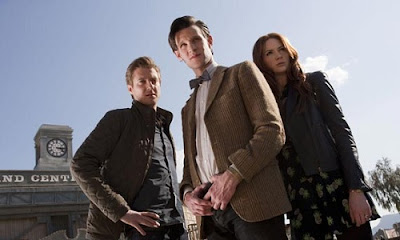Chris Chibnall's tenure as Doctor Who showrunner has been a mixed bag at best, reaching its nadir when last season's finale saw fit to saddle the series' history and main character with entirely detrimental 'Chosen One' clichés. Mercifully, Chibnall's last new year's special was one of his better efforts and this year's, 'Revolution Of The Daleks', looked set to be a standalone free from the canon-defiling nonsense which tanked last season. The return of John Barrowman as Captain Jack Harkness, absent for all but a short cameo since Russell T. Davies was at the helm, heightened expectations further.
On the plus side, 'Revolution Of The Daleks' was indeed largely standalone, despite featuring a large number of oddly specific callbacks: did anyone remember the second TARDIS stuck on Earth in the shape of a house? On the downside, while the canon revisionism from 'The Timeless Children' was for the most part eschewed, all Chibnall's worst writing habits were present in their most frustrating form.


















